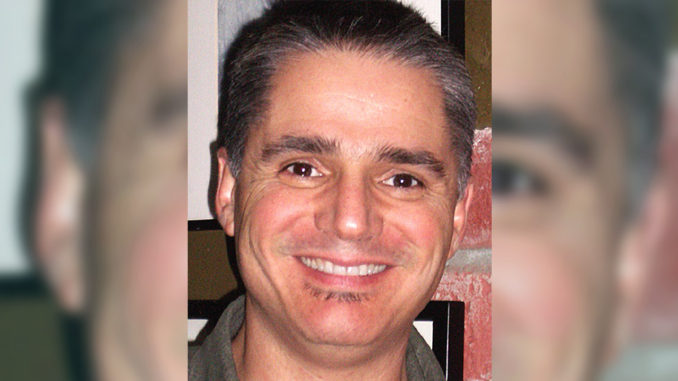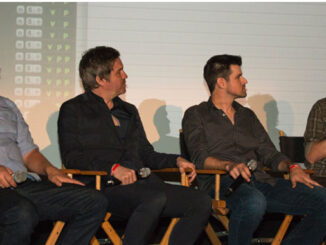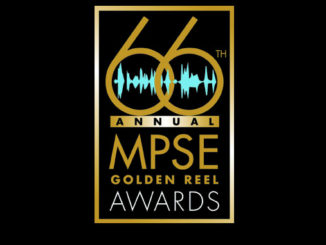
by Rob Feld
Joseph DeBeasi has worked as a music editor and composer on such diverse films as Dirty Dancing, Bright Lights, Big City, Frankie and Johnny, The Notorious Bettie Page, Notes on a Scandal and now, Reservation Road. Throughout his career, he has developed a keen sense of his job, as it has developed over time, as technician, creative, diplomat and interpreter.
CineMontage: As a music editor, you seem to operate in a world serving a variety of interests. What’s the first thing you do when you come onto a project?
Joseph DeBeasi: Whenever I work on any film for a temp score, it’s really about understanding who’s going to be communicating to me the emotional needs of the movie. Sometimes it’s the picture editor, sometimes it’s the director, sometimes it’s both. Generally speaking, it’s the director, and there’s usually an interview process I go through with directors, without them feeling like they’re being interviewed: what they like and dislike about their movie, what they want to have music say for them, what they want to stay away from. In one way, it’s building a relationship and friendship with people who have birthed a baby that you’re going to come in and help dress.
CM: When does that start for you?
JDB: It depends. I’ve done three movies with Wayne Wang [Last Holiday, 2006; Because of Winn-Dixie, 2005; and Maid in Manhattan, 2002]. On the first movie, I came in after the director’s cut, but depending on the needs of the movie, I’ve been brought on during pre-production, then again during production. Typically, I’m on during the director’s cut, which is what happened with Reservation Road. It depends on budget, as well. You like to have a music editor on as soon as possible because it’s going to have bearing on how the movie is cut in relation to its timing.
CM: What was the process like with Terry George and Naomi Geraghty on Reservation Road?
JDB: I screened the movie with them and did a spotting session, just talking through it and the emotional aspect of it. Terry and Naomi are different people and express things differently, of course, but both have a high level of emotional intelligence and know where the picture wants to go emotionally––even if it’s not yet there on the screen. That’s so critical for somebody like myself, trying to interpret the movie on an emotional level.
But interpretation varies. I may interpret a sad moment as too sad, or not sad enough. It’s finding the level of what they’re thinking and feeling. There’s definitely a collaboration that happens, especially with Terry and Naomi. You know you’re there to serve the film, director and picture editor, for sure, but at the same time you get the sense that they trust you.
“Music editors are often like UN diplomats bridging the gap.” – Joseph DeBeasi
CM: So then what?
JDB: I start temping, putting on different scores, trying to find the voice of the film, musically. I pull out my library of scores from different movies and composers. I’d have discussions with Terry and Naomi, honing in on the emotional needs—where to push it, where to lay back, where to make this the focal point, musically.
Terry is very involved at the beginning and sets the goal, but then he lets you do your thing. I had more interaction with Naomi during that phase, and she’d play things for Terry. My interaction with Terry didn’t get heavily involved until the composer came on—that’s when I became the interpreter for Terry, who relies on both Naomi and myself to express verbally what’s he’s hoping for musically.
CM: How do you begin on the temp score?
JDB: After we screen and see what’s working and what’s not, I approach things as a composer. I know my role and don’t cross that boundary, but as I approach things on temp level, I think as a composer: “Is this thematic? Are we using a device here?” I think the early screenings are critical to help lay out the arc and blueprint for the composer. It’s not that the composer is ill-equipped to do this, it’s that the schedules today are so short that we no longer have the weeks of trial and error we used to. That’s really unfortunate.
They’ve got one shot, now, maybe two on certain cues. That’s why the temp score is so important—to help the director know what he wants and help the composer see what the director is looking for in terms of emotions. Sometimes, you’re playing irony and the music is playing counterpoint, and that’s a directorial decision that has to be made clear.
“There’s usually an interview process I go through with directors, without them feeling like they’re being interviewed: what they like and dislike about their movie, what they want to have music say for them, what they want to stay away from.” – Joseph DeBeasi
CM: Do you see yourself as more beholden to the director or composer?
JDB: At the temp stage, the director. But I believe we’re always working for the director and for the film. A composer is really working for the director and film. At the same time, once a composer comes on, I’m all composer; whatever I can do to help him achieve his goals. Once temp world is over, my hat switches and becomes a traditional music editorial role: help communications, bridge the gap. It was trying to interpret between what Terry was saying and what he was really meaning.
CM: So it’s translation.
JDB: Absolutely. Sometimes you get stuck in the middle. Some composers want the description to be general, like “The emotion isn’t sad enough here.” But sometimes the director is saying, “I just don’t like that piano, or that melody.” We’re often like UN diplomats bridging the gap.
Some directors get frustrated because they don’t understand music but they know what they feel. You have to communicate that to a composer in his language; translate that the director is feeling jittery and nervous into a note about the rhythm section. That’s the state of things now. A lot of the time, composers have two other movies going on and it’s not like he or she is sitting with the director, changing things right in front of him. Post scheduling is so short now.
CM: You worked with composer Philip Glass on Notes on a Scandal. How was that experience?
JDB: Working with Philip was a fantastic experience. The first day I worked with him I was struck by his openness. He welcomed me and my input. He was open to my thoughts on all aspects of the score; not just the technical. It was refreshing to be involved at that level and be part of his musical team.
Some composers are not as open when it comes to the creation and production of their score. Not so with Philip. I am very grateful for his generosity and all that I learned from my experience with him.






